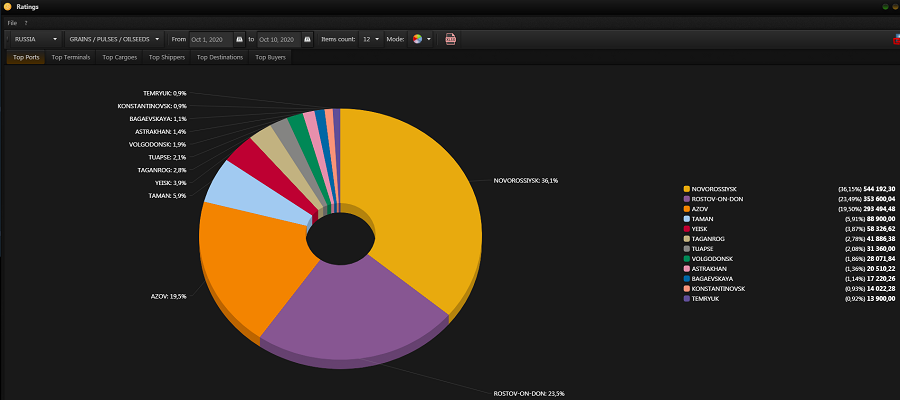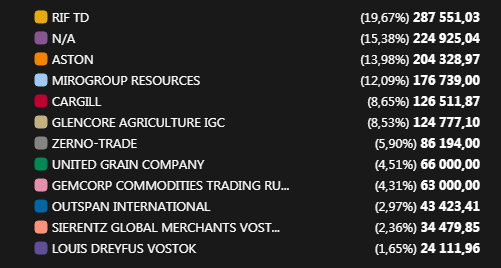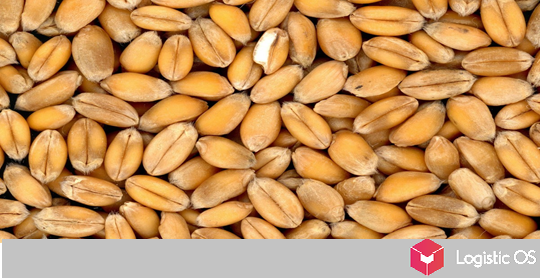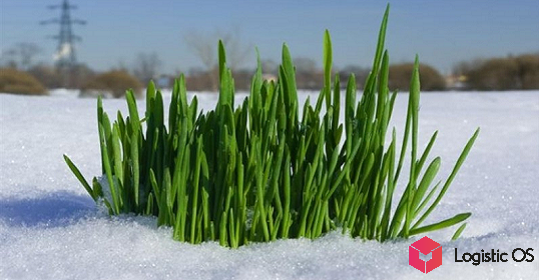We analyze the dynamics of grain exports based on the Logistic OS platform.
Last week, wheat prices went up again and reached local highs.
The price of wheat with a protein content of 12.5% (FOB) from Novorossiysk rose to $ 245 per tonne. A week earlier the cost of a culture was $ 237.
The price is under pressure from high demand from importers, weak sales of farmers and growth of quotations on world exchanges.

(graph of changes in the price of wheat throughout the year)
In addition, the dry weather prevailing in almost the entire territory of Russia during the planting of winter crops causes concern among farmers. According to preliminary estimates, against this background, a 10-15% reduction in the area under crops is expected.
From October 1 to October 10, 2020, Russia exported 1,652 thousand tons of grain.

A year earlier, this volume amounted to 1,394 thousand tons.
Thus, export growth for the first 10 days of October amounted to 18.5% over the same period last year.
The ongoing discussion of the introduction of quotas on grain exports after January 1, 2021 is also pushing to speed up the shipments of exporters.
At the same time, the group of major exporters remained practically unchanged:
1-10.10.2020

21-30.09.2020

OOO TH RIF increased its shipments by 32.4%, still leading the rating.
Aston JSC slightly, by 4%, reduced turnover, and Mirogroup Resources added 19% to the indicators of the last ten days of September.
A new problem that Russian grain exports may face is the industrial cultivation of GMO wheat varieties.
The first country to introduce permits for the cultivation of such a crop was Argentina.
The largest importer of this country is Brazil (45% of exports).
So far Brazil has not approved the import of genetically modified varieties, but, according to the head of the Brazilian Wheat Producers Association, they are following the situation with interest.
If countries decide it is safe to buy GMO wheat, this will lead to a rapid increase in the production of these varieties.
That will become a problem for wheat producers, including Russia, where the cultivation of GMO varieties is prohibited.
According to analysts, Russia needs to be prepared for such a scenario and not miss the technological revolution, because, due to climate change on the planet, such varieties will have to be grown even by those countries that are afraid of using GMOs.
(Analytics based on Ratings )

